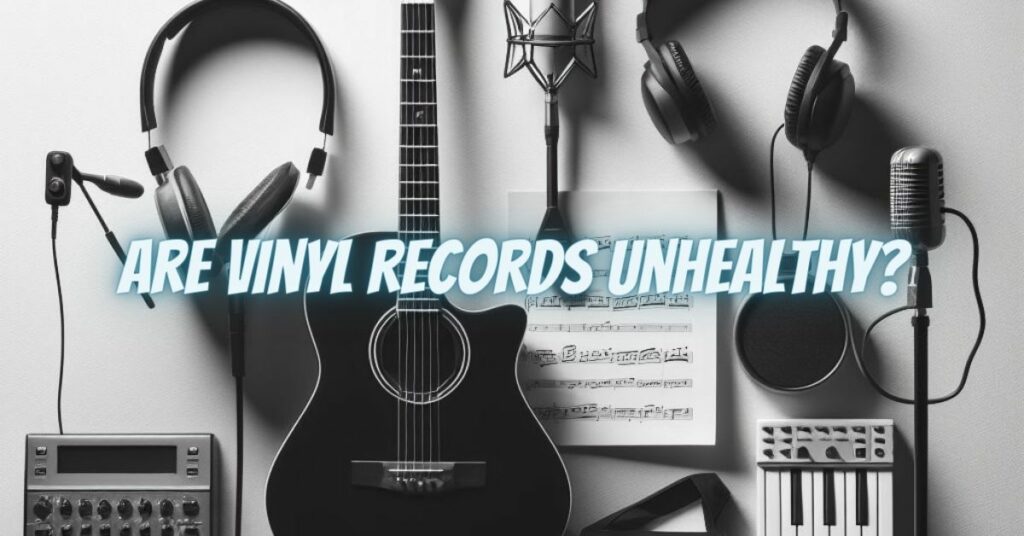Vinyl records are made from polyvinyl chloride (PVC), a type of plastic. PVC contains a number of chemical additives, including some that are known to be harmful to human health. However, the amount of exposure to these chemicals from vinyl records is very low, and the risk of any adverse health effects is minimal.
The highest exposure risk to the chemicals in vinyl records is for workers in the manufacturing plants. However, even for these workers, the risk is still relatively low. For people who simply listen to vinyl records, the risk of exposure is even lower.
There are a few ways that people can be exposed to the chemicals in vinyl records:
- Inhalation: When vinyl records are played, they can release small amounts of chemicals into the air. These chemicals can be inhaled by the person playing the record or by anyone else in the room.
- Skin contact: People can also be exposed to the chemicals in vinyl records by touching the records. This can happen when people are handling records, cleaning them, or putting them on or taking them off of a turntable.
- Ingestion: It is also possible for people to ingest the chemicals in vinyl records if they put their fingers in their mouths after handling records. However, this is a very unlikely way to be exposed.
The most common chemicals in vinyl records that people may be exposed to are phthalates and lead. Phthalates are a group of chemicals that are used to make PVC more flexible and durable. Lead is a heavy metal that is known to be harmful to human health.
Phthalates have been linked to a number of health problems, including reproductive problems, hormonal problems, and neurological problems. Lead exposure can cause a variety of health problems, including brain damage, learning disabilities, and behavioral problems.
However, the amount of exposure to phthalates and lead from vinyl records is very low. Studies have shown that the levels of phthalates and lead in the air and on the surfaces of vinyl records are well below the levels that are known to cause health problems.
In addition, the chemicals in vinyl records are more likely to be released into the air when the records are new. As records age, the chemicals become less volatile and are less likely to be released into the air.
Overall, the risk of any adverse health effects from exposure to the chemicals in vinyl records is very low. However, there are a few things that people can do to further reduce their risk of exposure:
- Wash their hands thoroughly after handling vinyl records.
- Clean vinyl records regularly with a record brush or anti-static cloth.
- Play vinyl records in a well-ventilated room.
- Avoid putting their fingers in their mouths after handling vinyl records.
People who are concerned about the potential health risks of vinyl records can also choose to listen to digital music instead. However, it is important to note that digital music also has some potential health risks, such as hearing loss from listening to music at too high of a volume.
Ultimately, the decision of whether or not to listen to vinyl records is a personal one. People who weigh the risks and benefits and decide that they want to listen to vinyl records can take steps to reduce their risk of exposure to the chemicals in the records.


